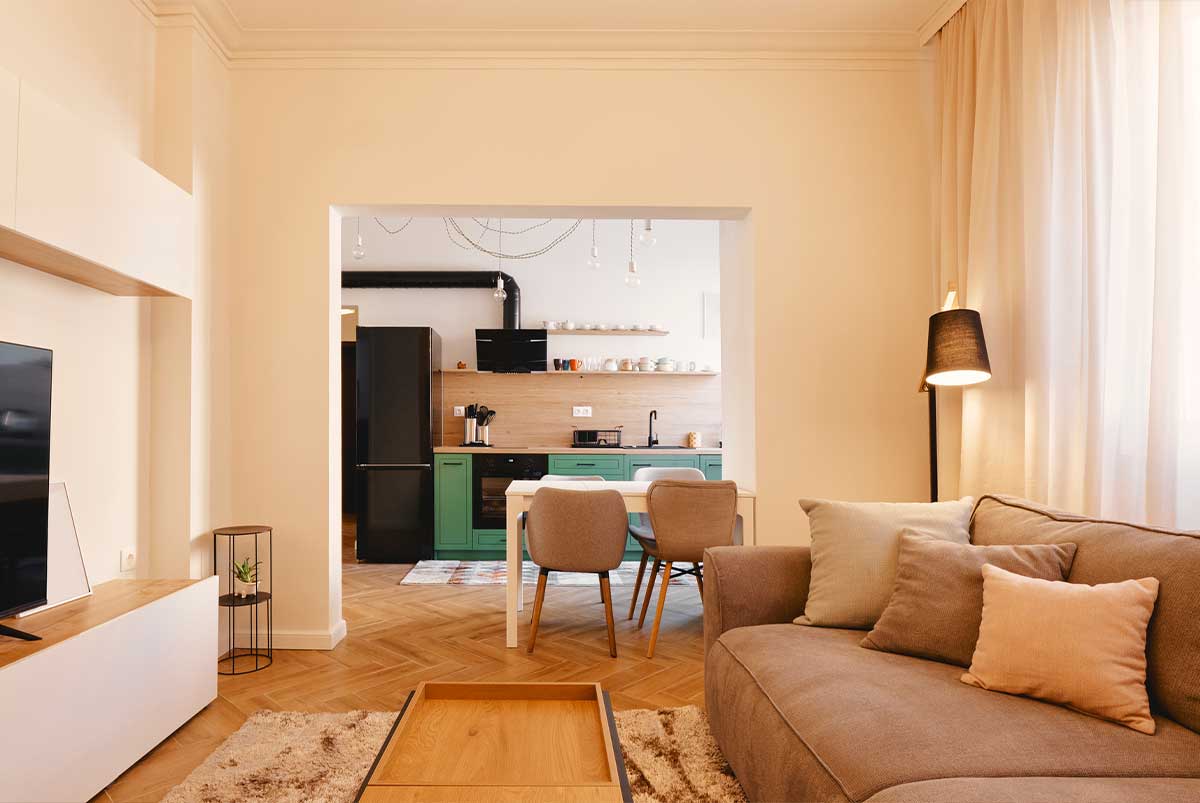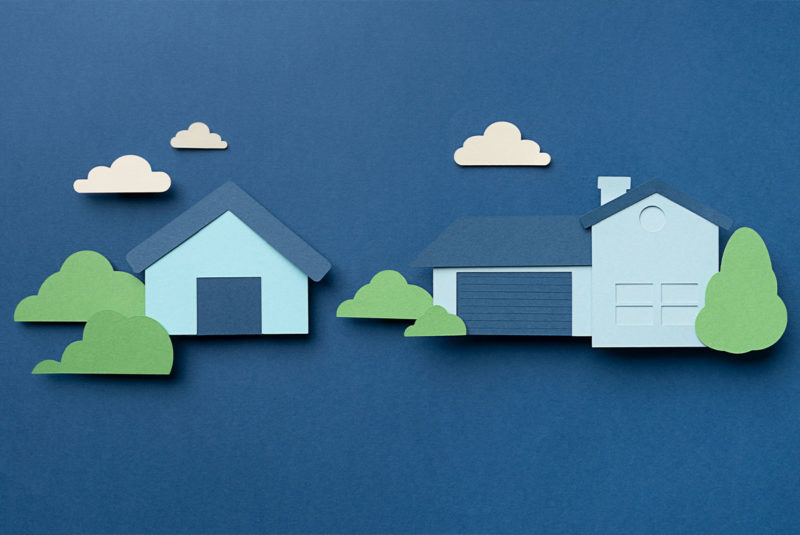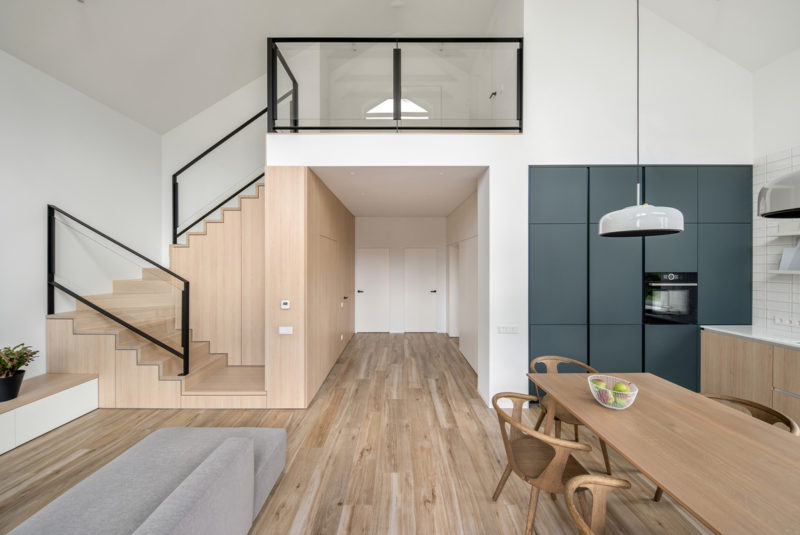Ready To Buy a Home?
Get Approved to Buy a Home
Rocket Mortgage® lets you get to house hunting sooner.
When you’re new to the renting game, all options are on the table when it comes to getting your empty investment property occupied and profitable. If you purchased a second home so you can rent it out, you might be wondering if listing it with Airbnb would earn you more than renting it to a long-term renter.
Whether you should rent your investment property to long term tenants or explore short term vacation rental options will depend on where you live and the type of property you own. Read our guide to help you decide whether you should try your luck with Airbnb or start looking for long term tenants.
How Is Airbnb Different From a Traditional Rental?
It wouldn’t be surprising if you assumed that renting out a property on Airbnb and signing a year-long lease with a tenant is practically the same thing. But there are a lot of differences, including the length of stay, income potential, associated expenses, taxes and zoning laws.
Airbnb is different from renting primarily because of the length of stays (usually short) and the hosts furnish the rentals.
Airbnb vs. Renting: Rental agreement length
Airbnb allows hosts to use their homes as short-term or vacation rentals. The Airbnb business model relies on short stays and quick turnarounds. You can rent an Airbnb for longer than a month, but that’s rare. If your Airbnb property is popular, because of the shorter rental terms, you’ll have lots of guests coming and going.
Traditional rental leases last for a year. Tenants move in and agree to stay for a year or pay an early termination fee if they move out early. Some apartments offer shorter leases. But in exchange for renting for several months or paying month to month, tenants often pay higher rents.
Airbnb vs. Renting: Income and pricing
Airbnb pricing is a little more versatile than traditional rentals because:
- You can offer daily, weekly or monthly rates.
- You can offer discounts for longer stays or charge more money per night if a guest stays for a weekend.
- You can make price adjustments whenever you choose. So there should be no reason to regret renting to a guest at a lower rate on a hot property because you can always hike the price. If no one is renting your property during low seasons, you can reduce the price to attract more visitors then raise it during high seasons.
Some Airbnb property owners make most of their money during holidays, over the summer or during periods when their location is a popular travel destination.
If you can keep an Airbnb property booked, there is huge income potential because the daily cost of an Airbnb is usually cheaper than the daily cost of a hotel room.
You’ll also need to perform regular upkeep on the property. You’re responsible for providing furniture and amenities, like sheets and towels, and utilities, including Wi-Fi and cable. After all your expenses, it makes sense that you’ll want to recoup your investment because an empty Airbnb is an Airbnb that isn’t earning money.
Traditional renting provides a more stable income with less profit. You’ll have to consider whether it’s more profitable to rent your house at a lower rate or to list it on Airbnb for short stays.
Airbnb vs. Renting: Rules and regulations
Some cities, such as New York City and Washington, D.C., have cracked down on Airbnb properties and enacted strict rules. Check to see if it’s legal to rent a property through Airbnb in your city or state because it’s a nonstarter if the local laws don’t allow it.
If you can rent your property through Airbnb, there may be rules and regulations to follow, such as noise curfews and building maintenance laws.
With a traditional rental, your tenant pays rent according to the terms of the lease. You can’t raise the rent until the lease is renewed. Some areas may even set limits on how much you can increase the rent when a lease is renewed.
Depending on where you live, you might need to get a permit and perform maintenance to keep the home up to code. Tenants, however, are responsible for taking care of the property, and they’re liable for any damage that happens during their stay.
Airbnb vs. Renting: Property insurance and other potential expenses
Your property insurance can be impacted by converting your home into an Airbnb. Insurance companies associate short-term rentals with higher risk. Some insurers might not offer you a policy.
To supplement your home or landlord insurance, you could look into AirCover, which is offered by Airbnb.
When you rent through Airbnb, you must furnish the rental and provide other amenities. Guests want to arrive to fresh linens, fluffy pillows and comfy towels. You may be able to entice renters by letting them know you keep the fridge stocked and offer cable TV and internet access.
Traditional landlords are only on the hook for routine maintenance calls and manage whatever utilities and services are agreed to in the lease or rental agreement. Your tenant brings or buys their furniture, connects their TV and internet and keeps the place clean.
Airbnb vs. Renting: Tax considerations
Whether you take the traditional route or list your property with Airbnb, you need to pay Uncle Sam on whatever you make – and short-term rentals offer fewer ways to deduct income.
In addition to state and federal income taxes, you may pay an occupancy tax on your Airbnb property because it sees so many visitors.
Traditional landlords, on the other hand, have a long list of tax write-offs they’re eligible for when they lease their properties.
Before you decide which direction to take, sit down with a real estate lawyer or tax accountant to hash out the tax consequences associated with each choice.
What Are the Advantages of an Airbnb Rental Property?
Airbnb has gone to great lengths to convince property owners to list their homes on its platform. The platform is designed to make the process of converting your home into a vacation home rental or short-term rental as easy as possible.
It’s also easier for Airbnb guests to find rentals they like. They don’t need to make large deposits, negotiate with a landlord or get their credit checked for a summer rental. Finding a comfortable place to stay can be as simple as a few clicks and a credit card.
What Are the Advantages of a Traditional, Long-Term Rental Property?
The primary advantage of a traditional rental property is the fixed, predictable income. You may not earn as much, but you’re likely guaranteed a steady income once your tenant signs the lease.
If you’re in the middle of financial planning and you need to know what your income is going to be every month, the traditional rental route might be a good option for you.
A traditional rental property also frees you from a lot of the stress that can come with maintaining an Airbnb. You don’t need to furnish the unit or clean it regularly. You may need to answer a service call from time to time, but you can mostly sit back and enjoy the predictable cash flow.
What’s the Better Strategy? Airbnb vs. Renting Factors To Consider
There’s no cookie-cutter answer to this question. It primarily depends on the area and the type of property you own.
You should do some market research and speak with professionals before you make a decision. Real estate agents and attorneys can help you figure out if you can legally convert your home into an Airbnb.
And here are some other items to consider:
Location
If your area gets lots of tourists during the year, you’re probably well-positioned to list your house on Airbnb. If your property is located somewhere that doesn’t get much tourist traffic, a long-term rental may make more sense if it’s harder to attract visitors.
Property condition
Airbnb properties need to be attractive and have unique features and amenities that make them stand out to potential guests. If your property doesn’t have these features and you don’t want to invest in upgrades, a traditional rental might be the better option.
Renters are usually more willing to add flair to a place they’re staying in longer-term but only want the best-looking homes to stay in when they’re on vacation.
Local market rates
Find out what properties in the area are renting for and then compare the rates with what you find for similar homes on Airbnb. This will give you a better picture of whether or not it’s best to consider short-term renting.
A tax on your time and resources
Are you ready to commit the extra time it takes to attract people to your property and keep it looking good all year? For some homeowners, the extra income isn’t worth the nonstop work. Remember, you’d need to make time for Airbnb and the other priorities in your life, too.
Bottom line: Income potential
Calculate how much it would cost to turn your property into an Airbnb property and perform an analysis of occupancy rates in nearby Airbnb properties. This can help you decide if the income potential of an Airbnb is worth the upfront investment.
Rent: Not the Musical, but It Can Still Be Music to Your Ears
When deciding what strategy works for you, remember that some properties are more suitable for short-term renting than others. While Airbnb is an excellent way to make money, it’s not always the most profitable way after you account for your expenses and your time.
Talk to the experts, do your homework and decide what works best for your situation.
Cheers to your next adventure!
New job or new boo, you’re moving. Congrats! Use our cost of living calculator to start planning your new lifestyle.
The Short Version
- Converting your rental property into an Airbnb can be more profitable in some regions or cities
- Some people have become rich from renting their properties with Airbnb, but it doesn't work for everyone
- You can rent an Airbnb for longer than a month, but most guests book them for shorter periods




